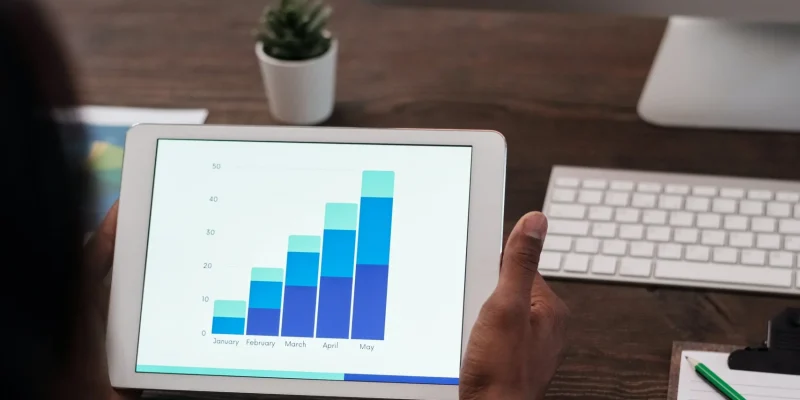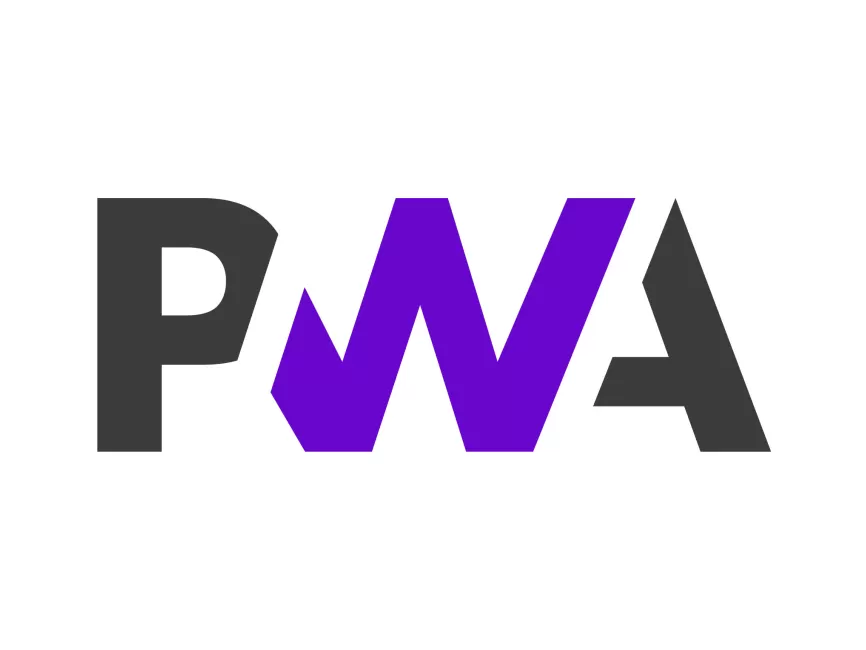Getting a website for your business is one thing, what comes next is another. To make the best out of a website, constant analysis is very important. Since market trends change so much, always being on the lookout for positive changes that you can bring about in your website can be really helpful.
Before we get into the technicalities pertaining to analytics, let us first try to understand what role websites play in the growth and sustenance of a business.
Businesses can benefit from using analytics on their website by determining the pattern their traffic follows and optimising their strategies according to it to boost performance.
What is commonly referred to as digital marketing covers a broad set of strategies, one of which is website marketing. Not so much as marketing in itself, but it essentially forms the base for all other forms of digital marketing.
Here’s a deeper look into website marketing.

How Websites Help Businesses
Websites can have a huge impact on how prospects see your business. No matter what kind of business you’re running, whether its a restaurant, a hardware store, a plumbing service, or any other sort and size of business, if you invest into the right kind of website, you can be sure that customers will come to you.
Here are some ways that websites impact businesses:
- Establishing Credibility
- Increasing Visibility
- Building Trust
- Round the Clock Customer Service
- Generating Leads
- Reaching a Wider Audience
And these are just the tip of an iceberg. Depending upon the type of website you get and what you do with it, you can use your website for various purposes.
1. Establishing Credibility
The first thing your website does for you is that it announces to prospective customers that you exist.
Of course, you may take other ways to announce that. Billboards, flyers, and other analog means of marketing do the work good enough, so why should you go for a website?
Websites don’t just announce that you exist in some certain part of the world, they also give you an air of authority. When a user sees your website, they know you aren’t a substandard business. Of course, it matters what your website looks and feels like to build that sort of credibility.
But in most cases, if things are done right, the impression that goes out is that you are someone that is a full-fledged business that is capable of getting things done. You can always tweak and improve your website design and get on the right track.
2. Increasing Visibility
Your reach may be limited to a certain neighbourhood or city where you are physically located. This limits your visibility. You may be able to reach out to people but that would take an enormous amount of time and effort. A website can make this way easier for you.
Perhaps your shop missed someone’s eyes but when someone on the Internet is looking specifically for the services you’re offering, they’ll easily find you through your website. Discovering your business becomes far easier for customers. And if they like what they see, your business will improve by miles.
Most importantly, a billboard or flyer can’t say everything you might want your customers to know. A website, on the other hand, is a platform where you can showcase everything you have.
3. Building Trust
Connecting with your customers is much easier with a website. Show them everything you offer, who you’ve worked with and if you feel like it, tell them your story.
People find it much easier to trust a business when they know more about it. Don’t flaunt too much though. What you want is to tell them the truth, a believable story.
Building trust means your customers will be coming back to you the next time too. If you’ve got a place that is easily reachable for them, they’ll know how to get to you. Websites help build trust and keep your customers engaged.
If you allow feedback on your website or provide a space where they can easily reach out to you for queries, you’ll be able to establish a strong network with your customer base.
4. Round the Clock Customer Service
You might not always be around to entertain your customers. But your website stays online at all times. If done right, you can provide answers to your customers whenever they reach out to you.
Including as much information as possible and frequently asked questions on your website helps customers greatly. If you think some part of your procedure requires a longer explanation to satisfy your customer, create a page specially dedicated to that process. A website makes it possible to explain your work process.
You can’t keep your store open all day and night, but if all the information on your website is available at all times, you won’t miss any prospective customers that may otherwise need to head to your physical business location.
5. Generating Leads
The term itself is thrown around quite casually in digital marketing. Simply put, generating leads is all about convincing people to buy your service.
It isn’t a simple process and there is no concrete way that ensures leads. What kind of services you offer can change the strategy it may take to generate leads. For example, if you’re an eatery, instead of reaching out to people through ads, a website that shows your exact location, and some food items you serve is likely to generate more leads.
If you have order services, all the better. But strategies for generating leads vary from business to business. Websites form the foundation of all those strategies but what matters the most is what your website is showing and what impression it gives to prospective leads.
6. Reaching a Wider Audience
There’s only so much you can cover with analog forms of marketing. If your business isn’t confined to a location, that is, maybe you ship products around the world or perhaps you provide some intangible forms of services. If so, there’s no reason you should confine your marketing strategy to a single city or country.
Websites help you gain maximum exposure, in and around your country and if you wish to expand, in other parts of the world too. Websites also reduce the cost it takes to reach such a wide audience. You can make your website accessible by including options for various languages.
To put it bluntly, analog marketing techniques cannot cover even half as big an audience as a good website can.
How Website Analytics Help Businesses
Where a successful website is concerned, perhaps the most crucial aspect is analysing its performance.
Analysing how your website is performing can give you helpful insights which you can use to improve your website. You don’t have to be an expert of human psychology to conduct an analysis. Your job is monitoring numbers and deducing what works and what doesn’t.
Let us take a look at how analytics can be used to improve business.

1. Which Page Is Most Clicked
Look for the page on your website that receives the highest number of clicks. Study that page in and out, even if you yourself made it. Determine what makes it successful and what it has, that other pages do not.
This lets you determine what your prospective customers want to see and what their interests are. If you can successfully decipher this pattern, all that’s left is serving users what they want. This way, you can boost the interest of your users and generate leads for your business.
You can use analytical tools to make this observation. Once you’ve got enough data, try to follow similar strategies on other pages on your website too. This could be regarding your content and what you talk about, or it could be something related to your description. Increasing clicks is the first step towards introducing your business to prospects.
2. What Kind Of Topics Get More Clicks
You may notice that certain types of pages get more clicks than others. Determine what kind of pages they are. You may be talking about something that piques general interest more than some other things on your website.
Although just knowing that won’t be helpful if those topics aren’t all you want to talk about, it might give you a direction of user preference and what direction you want to go in.
For instance, let’s go back to our restaurant example. You may have several pages on your website for different cuisines. Perhaps you create blogs aside from your portfolio website. Notice what kind of cuisine gets more user interest. If you find that customers clearly prefer a certain cuisine, perhaps including more items relating to that cuisine into your restaurant menu won’t be a bad idea.
3. What Kind Of Pages Have The Longest Interaction Time
Another thing you want to watch out for is that maybe users click on certain pages a lot but don’t stay on it for long. This won’t help you improve your business.
What you need in this situation is to monitor the pages where users come and stay the longest. See what that page looks like and how other pages are different from it. In some cases, you might need to do a very thorough study.
Avoid click baiting in your website. Your page should talk about the right things so people won’t feel like they’ve been fished. This is key to building trust with your customer.
If you want to get the most out of your website, make sure it perfectly reflects what your business stands for and doesn’t deviate too far away from your niche.
You don’t want to include pictures of animals on a page that sells water hoses. A better choice would be plants. So even if you’re bringing in elements to complement your business, don’t bring in irrelevant materials.
4. Which Page Has The Highest Bounce Rate
Do a bit of research into the weakest parts of your website. As they say, a chain is only as strong as its weakest link.
If you ignore your weaker pages, you’ll be missing out on invaluable insight. For example, if you’ve got a clothing business, your website may have pages or tabs for various styles of clothing. Notice which style page has the highest bounce rate.
This analysis will tell you that customers don’t like what they see on the page. Hence, the particular style is either out of fashion or people simply don’t like it. Would you still keep such styles of clothes in your store? Perhaps. But would they be your priority or something you’d want to invest in in the future? Likely no.
Such analysis help you make the right decisions in your business and save you from unnecessary and wrong decisions. This analysis is key to the sustenance and stability of your business.
5. Which Pages Have Least Interaction
Another factor is simply to see which pages don’t get any visitors. Such pages are points of disinterest. Reasons may vary. You may want to remove these pages or revamp them with something bigger.
All in all, if you are doing market research for your business, these pages will be an important point to notice. Keeping up to date with what people are interested in is crucial to any business. You don’t want to put your resources where people aren’t even remotely interested.
This isn’t about people clicking on a page and leaving immediately. This is about people not clicking in the first place. This one is even worse than bouncing. It shows your customers aren’t even remotely interested in certain things.
It could also be that those particular pages aren’t designed well enough or lack some crucial element that evokes engagement.

Takeaway
Analytics from a website can determine the direction of your website in the long run. Getting a website for your business is one thing but making sure it is utilised the right way is also important. You have to keep an eye on how your website is performing and what kind of people prefer what kind of things, to optimise your website for a larger, more diverse audience.
Heads up!
Before you dive into analysis, make sure you have a good website design for your business. If your website is out of place for what it is meant to represent, no amount of analytics will help you improve your business. Make sure to get a professional, well optimised website that is easy for users to interact with.
Lastly, always keep an eye on your website health. The more you expand your business, the harder it gets to keep up with everything. Make sure you don’t suddenly start neglecting your website. Get someone to manage it for you if you think you won’t be able to keep up.






